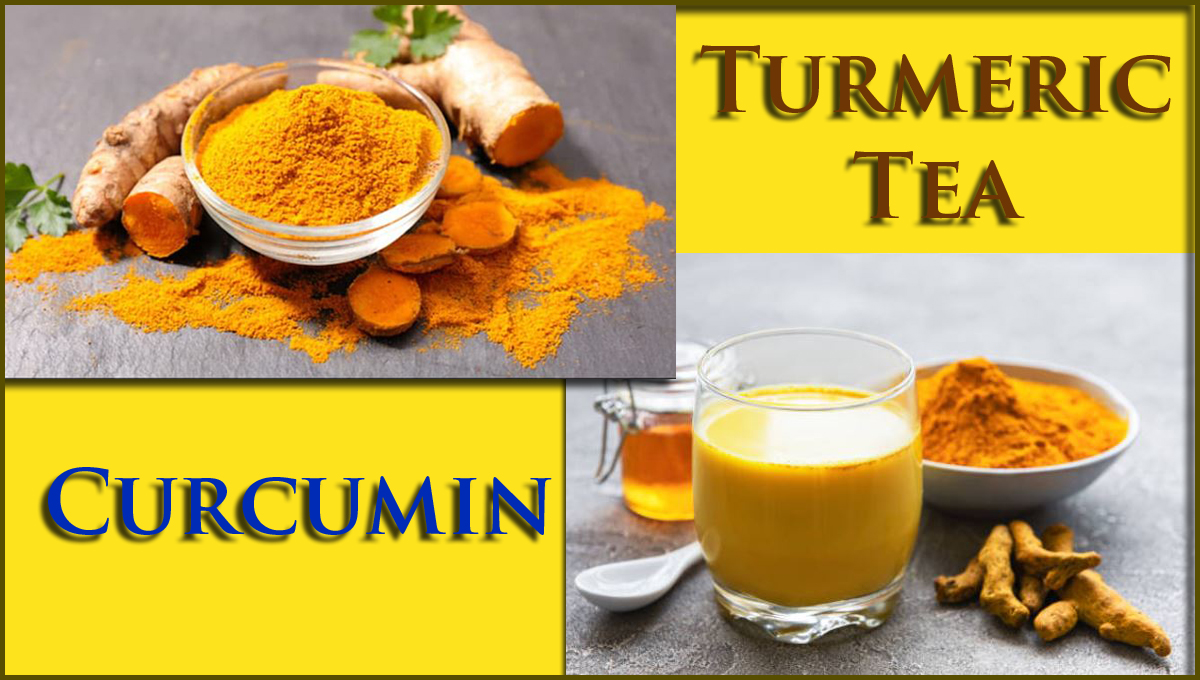10 Health Advantages of Turmeric Tea
Turmeric Tea, derived from the root of the Curcuma longa plant, is a celebrated spice replete with health-boosting attributes. Its virtues encompass fortifying the immune system, safeguarding the liver, and alleviating arthritis discomfort.
- Mitigation of arthritic symptoms
- Amplification of immune competence
- Attenuation of cardiac complications
- Cancer prevention and management
- Management of irritable bowel syndrome (IBS)
- Prevention and treatment of Alzheimer’s disease
- Safeguarding against liver ailments and gallstones, and the management of hepatic conditions
- Diabetes prevention and management
- Management of respiratory conditions
- Facilitation of weight reduction
Key Points About Turmeric Tea:
- Turmeric’s active ingredient is curcumin.
- Curcumin imparts distinct yellow hue to turmeric.
- Scientific evidence supports curcumin’s anti-inflammatory and immune-enhancing properties.
Elucidation of Turmeric Tea
Curcumin presents a conundrum in terms of bioavailability, implying a certain inaccessibility and absorptive challenge for the human system. It’s this very reason that has fostered the popularity of turmeric supplements, characterized by elevated curcumin concentrations.

The preparation of turmeric tea may be accomplished through several techniques, such as:
- Grating the root of turmeric.
- Utilizing unadulterated turmeric powder.
- Employing commercially available turmeric tea, whether in the form of loose-leaf or a teabag.
Optimal Turmeric Tea Intake
- A definitive recommended daily quantum of turmeric is a non-existent facet. The proposed daily dose hinges predominantly on the specific health concern that an individual seeks to address.
- Based on extant research, it is advisable to administer 400–600 milligrams (mg) of pure turmeric powder thrice daily for adults.
- In broader terms, research has verified the safety of curcumin dosages of 4,000–8,000 mg daily, with outliers extending to 12,000 mg daily.
Grating the turmeric personally stands as the superlative route to ensure product purity.
What Are the Potential Benefits of Turmeric Tea?
Turmeric tea is associated with a wide range of potential advantages; however, it’s important to note that ongoing research is exploring the impact of turmeric on various aspects of health. It’s essential to understand that there are no absolute guarantees that turmeric can effectively address, let alone cure, specific health issues.
However, The advantages are:
1. Mitigation of arthritic symptoms
Curcumin, with its anti-inflammatory properties, could potentially alleviate the predominant symptoms of arthritis.
Empirical data from a 2017 study reveal that out of a cohort of 206 adults in the United States afflicted by self-reported rheumatoid arthritis, 63% resorted to non-vitamin supplements for symptom management, with turmeric emerging as the preferred option.
2. Amplification of immune competence
Scientific research posits that curcumin holds promise in augmenting immune function, underpinned by its antioxidant, anti-inflammatory, antiviral, and antibacterial attributes.
Moreover, curcumin functions as an immune regulator, thereby modulating immune cell functionality vis-à-vis cancer.
3. Attenuation of cardiac complications
A plethora of investigations substantiate the heart-healthy attributes of curcumin, underscored by its antioxidant and anti-inflammatory functions.
Scientific inquiry has demonstrated curcumin’s potential in thinning the blood, curbing cholesterol levels, and averting arterial constriction. These qualities furnish a protective mantle against a spectrum of cardiovascular maladies, while also mitigating the aftermath of diverse cardiac ailments.
4. Cancer prevention and management
The most resounding therapeutic aspect of curcumin pertains to its anti-cancer properties.
In its capacity as an antioxidant and anti-inflammatory agent, curcumin is believed to reduce the risk of cellular damage, thus diminishing the likelihood of cell mutations and the onset of cancer.
Furthermore, a multitude of research studies have illuminated curcumin’s anti-tumor qualities, restricting tumor proliferation and the dissemination of malignant cells.

A 2014 medical review underscores the robust association between “curcumin” and “cancer,” with over 2,000 published papers touching upon the topic. Present investigations are also exploring curcumin’s synergy with conventional cancer treatments like chemotherapy and radiation therapy.
5. Management of irritable bowel syndrome (IBS)
Curcumin has featured prominently in traditional therapeutic paradigms for diverse digestive maladies. Evidentiary support underscores the spice’s antioxidant and anti-inflammatory attributes, which may foster the regulation of gut microflora.
Notwithstanding, further research is imperative to elucidate curcumin’s potential in cases of IBS, alongside other intestinal inflammatory conditions such as Crohn’s disease and ulcerative colitis.
6. Prevention and treatment of Alzheimer’s disease
Empirical investigations indicate that curcumin may mitigate the risk associated with various neurodegenerative disorders.
It is posited that its antioxidant and anti-inflammatory characteristics mitigate cellular injury, inflammation, and the accumulation of amyloid deposits or plaques that typify these ailments.
Furthermore, curcumin may impede or forestall specific protein alterations associated with age-linked neurodegeneration.
7. Safeguarding against liver ailments and gallstones, and the management of hepatic conditions
Numerous studies have underscored curcumin’s protective prowess against liver maladies.
Potential hepatic and biliary merits encompass the enhancement of bile production and the safeguarding of hepatic cells from the deleterious effects of bile-related compounds.
8. Diabetes prevention and management
Turmeric has been an integral component of traditional therapeutic systems for diabetes over millennia.
Scientific investigations, relying on both animal and human models, have unveiled the potential of curcumin supplementation in terms of its anti-diabetic attributes.
9. Management of respiratory conditions
It is postulated that the anti-inflammatory and antioxidant attributes of curcumin may alleviate symptoms linked to chronic or persistent respiratory ailments.
A 2017 medical review concludes that, despite limited clinical validation, curcumin could offer respite in cases of asthma, pulmonary ailments, cystic fibrosis, lung malignancy, respiratory injuries, and chronic obstructive pulmonary disease.
10. Facilitation of weight reduction
A meta-analysis from 2019 underscores the capacity of turmeric to substantially lower the body mass index in individuals grappling with metabolic disorders.
Additionally, it might contribute to the reduction of leptin, a hormone governing appetite and adipose storage.
Turmeric Tea Making Ideas:
To concoct turmeric tea, an individual can harness pure turmeric powder or grated and desiccated turmeric.
Fermented turmeric formulations, often marketed as tea products, purport to contain heightened concentrations of biologically available curcumin, facilitating absorption.
Here’s a recipe for a single cup of turmeric tea:

Ingredients:
- 1 cup of water or milk
- 1 teaspoon of turmeric
- 1 teaspoon of cinnamon
- 1 tablespoon of honey
- 1/2 teaspoon of black pepper
Directions
- Bring the water or milk to a boil.
- Introduce the remaining ingredients into the boiling liquid.
- Steep for a duration of 10–15 minutes.
Upon executing these steps, it may be judicious to strain the tea into a receptacle and allow it to cool before consumption.
Supplementary Inclusions
To augment the tea’s flavor or facilitate turmeric absorption, individuals often incorporate additional ingredients. For instance, milk of one’s preference can be employed, whether of bovine or plant origin. Additional augmentations may encompass:
- coconut oil
- clarified butter, also known as ghee
- black pepper
- lemon or limeginger
- cardamom
- nutmeg
- cinnamon
- basil
- anise
- vanilla
- maple syrup
Turmeric Tea | Curcumin
The spice powder can also be blended with other tea varieties, such as green or black tea.
Frequently Asked Questions (FAQs)
- What side effects may arise from the consumption of turmeric tea?
Generally, curcumin is deemed safe for consumption. However, in sporadic instances, excessive ingestion may yield symptoms like diarrhea, discolored stool, skin rash, nausea, and headaches.
- Is it permissible to consume turmeric tea daily?
While curcumin is generally considered safe, comprehensive research is required to ascertain the safety or potential harm associated with daily turmeric tea consumption.
- Is it appropriate to partake in turmeric tea during nighttime?
Research from 2020 indicates that the timing of turmeric consumption may not significantly affect its antioxidant influence on the body. Nevertheless, further investigation on this topic is imperative.
In Closing
Turmeric, enriched with curcumin, is an exceptional spice replete with potential health benefits, conferring protection from various health afflictions. However, comprehensive validation of curcumin’s antioxidant and anti-inflammatory effects is still pending. Crafting curcumin tea is a straightforward task, utilizing curcumin powder or procuring commercial tea variants. Numerous enhancements can be integrated to elevate the tea’s palatability.










